Every swimming pool needs a pool filter. Without a functioning pool pump and filter, your water will inevitably turn green. However, which pool filter is best: sand, cartridge, or D.E. filter? We often encounter pool owners who are struggling to decide whether to keep their cartridge filter or to switch to sand or D.E.
Each filter has its own pro’s and con’s and each pool owner has his/her own list of priorities, as well. It’s important to keep your personal pool priorities in mind when choosing your filter.
The best pool filter for you is one that aligns best with your pool needs.
Sand Filters
The most traditional type of pool filter is the sand filter. Of the three types of filters, sand filters are the least effective. They filter particles that range from 20-40 microns. Sand filters use sand to filter dirt and organisms from your pool water. Once the debris is at capacity or full, the pressure inside the filter increases.
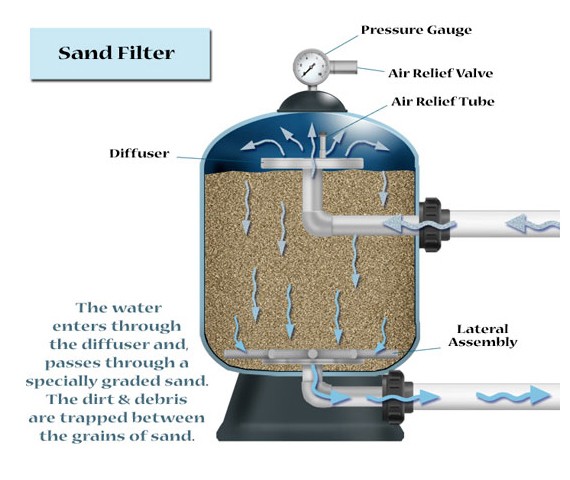 This is an indication that you need to backwash the filter. In short, backwashing is simply running the water inside the filter in reverse direction. With the help of your multiport valve, you can easily switch valve positions from filter to backwash. However, be wary because backwashing can also create other pool-related issues.
This is an indication that you need to backwash the filter. In short, backwashing is simply running the water inside the filter in reverse direction. With the help of your multiport valve, you can easily switch valve positions from filter to backwash. However, be wary because backwashing can also create other pool-related issues.
Before purchasing a sand filter, there are a few things you should keep in mind. First, if you continually backwash your pool, you can disrupt your water chemistry and affect the water levels. After backwashing your pool, you might find yourself rebalancing and refilling your pool. As a result, you spend more money on chemicals and water. Not to mention, you also have to figure out where you are backwashing the water.
You also need to purchase a valve to operate a sand filter. In many cases, the valve will come with the filter. However, that is not always the case. Make sure that you double- check the contents of the filter you want to purchase.
Pros
- Typically, the most compact and affordable
- Minimal maintenance
- Easy to clean (backwash)
- Straightforward operation
- Replace the sand every 5 to 7 years
Cons
- Lower filter ability compared to cartridge and D.E. filters
- Constant backwashing can throw off your water balance
- Higher spending costs on chemicals and water
- Need to determine where you will backwash the water to
Cartridge Filters
The second type of pool filter is the cartridge filter. Cartridge filters take advantage of pleated cartridges by maximizing the square footage of the filter. The larger the surface area, the more dirt particles you can filter out. Cartridge filters can capture debris as small as 10-15 microns. In terms of efficiency, cartridge filters fall in the middle.  However, they are the easiest to maintain.
However, they are the easiest to maintain.
When the cartridges are dirty or the pressure in your filter rises, it is time to clean them. Depending on the water chemistry, most pool owners clean their cartridges every six months. Cleaning is as easy as using a garden hose to rinse them off. There is no need to backwash a cartridge filter.
Cartridge filters work best at slow flow rates. An overly-sized pool pump has the potential to push the water straight through the cartridge filter and bypass the filtering stage altogether. It is important not to oversize your pool pump, especially when using cartridge filters. However, this also makes cartridge filters more efficient. Cartridge filters utilize and waste less water. Unlike sand filters, using a cartridge filter saves you money on chemicals and water.
Pros
- Low maintenance
- Easy to clean and replace filter cartridges
- The easiest type of filter to install
Cons
- Heavy algal build-up can potentially clog the cartridge. You will need to rinse the cartridge more frequently.
- Depending on the make and model, the price of a replacement cartridge can be high
- Works best with slow flow rates
Diatomaceous Earth (D.E.) Filter
If you are looking for the best way to filter your pool, D.E. filters are the way to go. Although they are most similar to sand filters, the approach to filtering is much different. Diatomaceous Earth, or D.E., filters use fossilized remains of diatoms to filter the pool. They collect particles and debris as small as 2-5 microns. Of the three types, a D.E. filter provides the most thorough cleaning.
D.E. powder coats the filter grids and allows water to pass through, trapping the dirt to one side. However, like sand filters, you clean D.E. filters by backwashing. Like most filters, you can monitor your pressure gauge to determine when your filter needs backwashing.
In addition to backwashing, D.E. filters require pool owners to clean the filter elements routinely . You can remove the grids and hose them down with a standard water hose. You can also soak your grids, which removes all of the dirt, oils, minerals, and stains from the filter fabric. This is one of the reasons why D.E. filters require the most maintenance.
Pros
- Best filtration ability
- Can go a few months without backwashing
- Grids can last several years if properly cared for
Cons
- You must add D.E. media to your grids after every backwash
- Higher costs related to maintenance
- Disassembling the filter grids can be time-consuming
- D.E. is a known carcinogen and you should refrain from inhaling it
- Like sand filters, you also need a backwash valve to operate the filter
Poolside Chat: Should You Switch From a D.E. Filter to a Sand Filter?
Poolside Chat is INYO Pools’ You Tube show where hosts Matt and Rob answer pool-related questions submitted by pool owners across the country. In a recent episode, Matt and Rob tackle whether pool owners should switch from a D.E. filter to a sand filter.
Watch the video below to hear some of the key points to keep in mind if you find yourself switching pool filter types.
Which Pool Filter Is Best?
Choosing a pool filter is an important decision for your pool. However, at the end of the day, you need to pick a filter that caters to your pool and personal needs. The filter that a pool owner in Florida chooses may not be the best decision for a pool of the same size in New York.
Before choosing your new pool filter, consider factors such as initial costs, maintenance routines, maintenance costs, costs associated with repairs, and the ease of operation.
If you are looking for the absolute best filtering option, not considering maintenance routines and costs, we’d recommend a D.E. filter. However, if you want something more economical and budget-friendly, you might want to consider a sand filter.
For more information, check out our video below on how to select an inground pool filter.

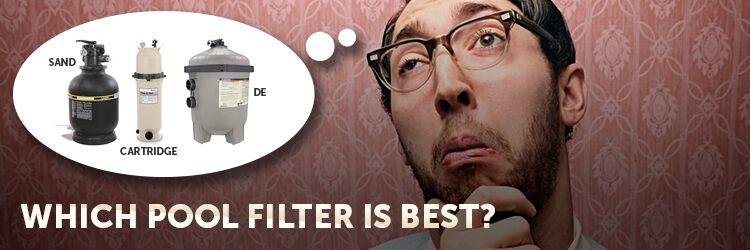



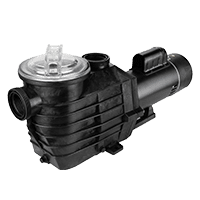
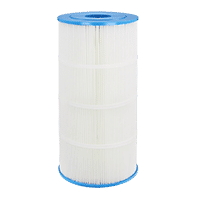
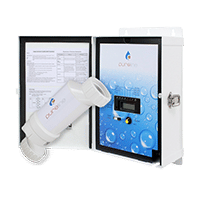
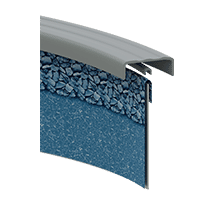
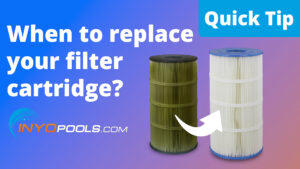
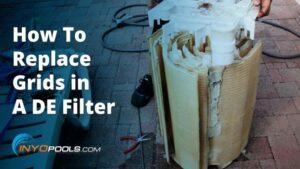


Leave a Reply